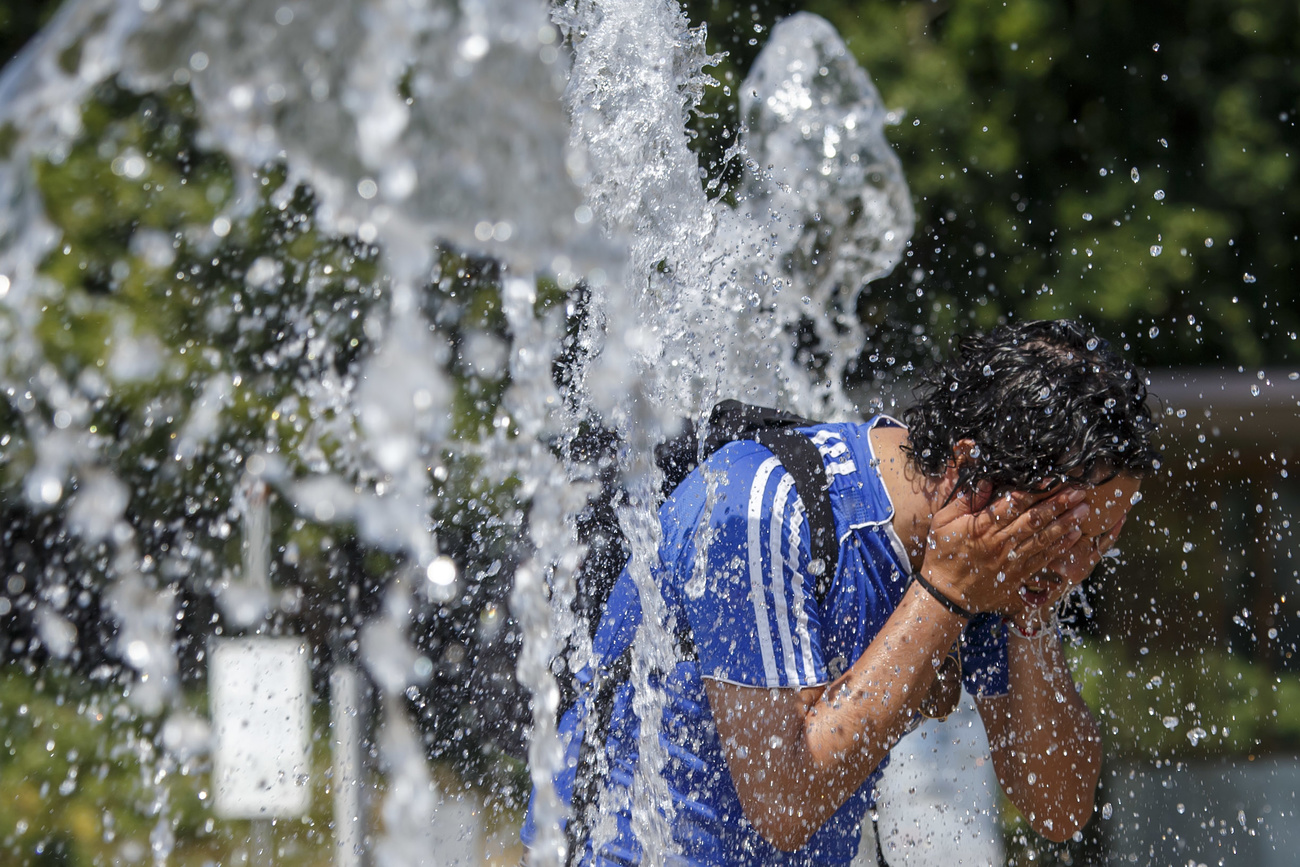
Swiss develop road surfaces to help cool cities

Swiss engineers have found a new type of road surface they say can help reduce heat in cities, while also reducing noise.
After testing 20 different types of surface, they have found a “test winner” that reduces heat by 12 degrees, reports Swiss national broadcaster SRF on Saturday. It was developed by a group of engineers, road builders and researchers. The tests were carried out on two roads in the federal capital Bern and in Sion, canton Valais.
“In the professional world, a maximum of 10 degrees was assumed,” engineer Erik Bühlmann told SRF. Roads occupy a large part of urban areas and the aim is to reduce heat islands.
The engineers now recommend four types of surface. Thanks to their lighter colour, they reflect better and absorb heat less quickly. Some surfaces are simply painted with a light colour, others have light-coloured gravel on top. The “test winner” uses small, light-coloured stones for the asphalt.
These surfaces also have noise-reducing properties and can withstand high loads, according to Bühlmann, who described their development as “groundbreaking”.
The research was supported by the federal government and the cantons of Bern and Valais. Various municipalities and cantons have expressed interest in these surfaces. In Lucerne and Zurich, the first roads will soon be built this way, even if they are more expensive.
“A variety of measures is the way to cool the cities,” University of Bern climatologist Stefan Brönnimann told SRF. He emphasised the urgency of the problem. “The number of tropical nights, which are very unpleasant for humans, is still relatively small, but that will change with climate change,” he said.

In compliance with the JTI standards
More: SWI swissinfo.ch certified by the Journalism Trust Initiative






























You can find an overview of ongoing debates with our journalists here . Please join us!
If you want to start a conversation about a topic raised in this article or want to report factual errors, email us at english@swissinfo.ch.